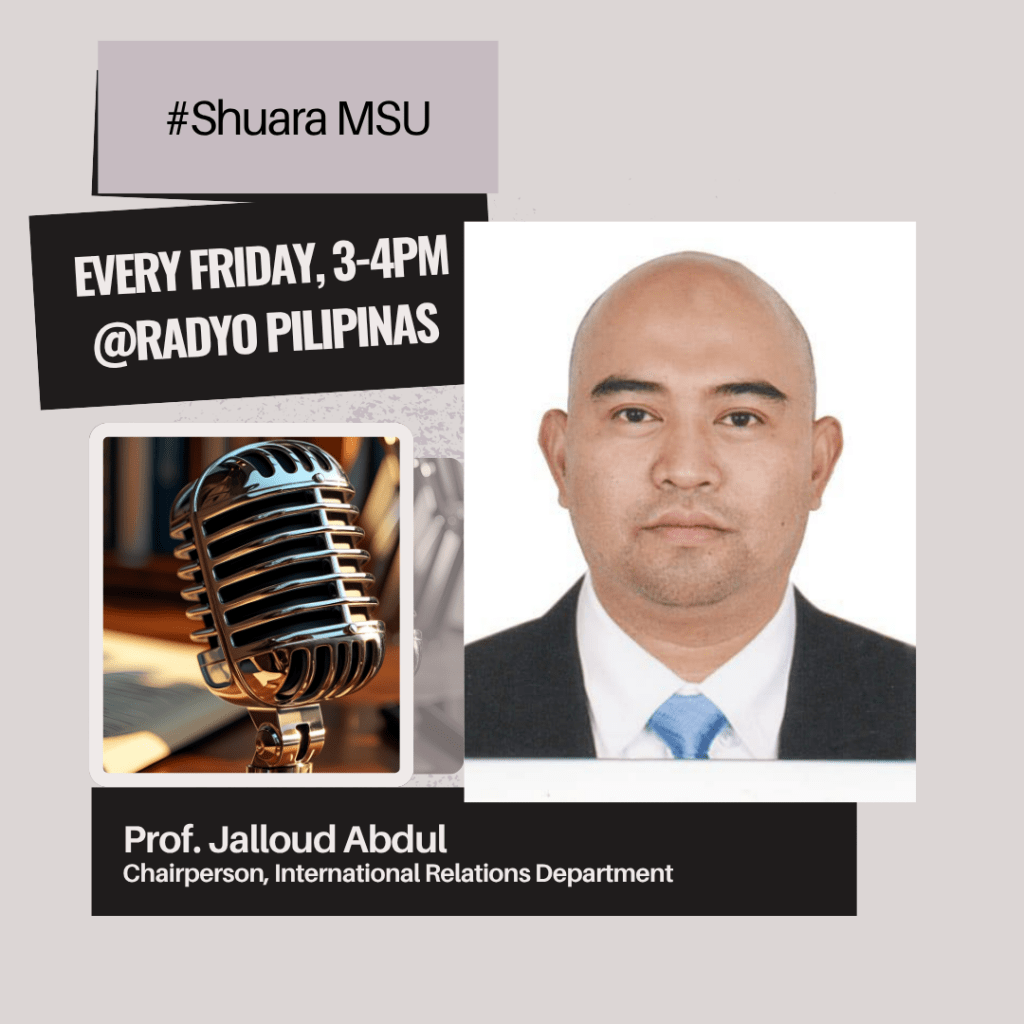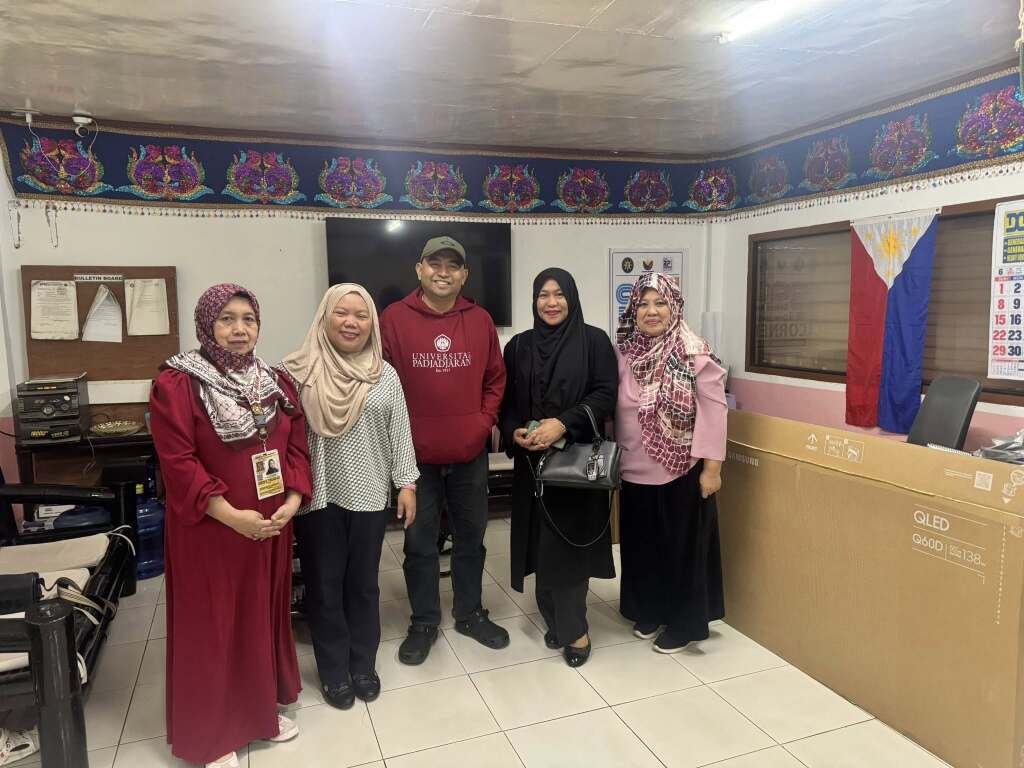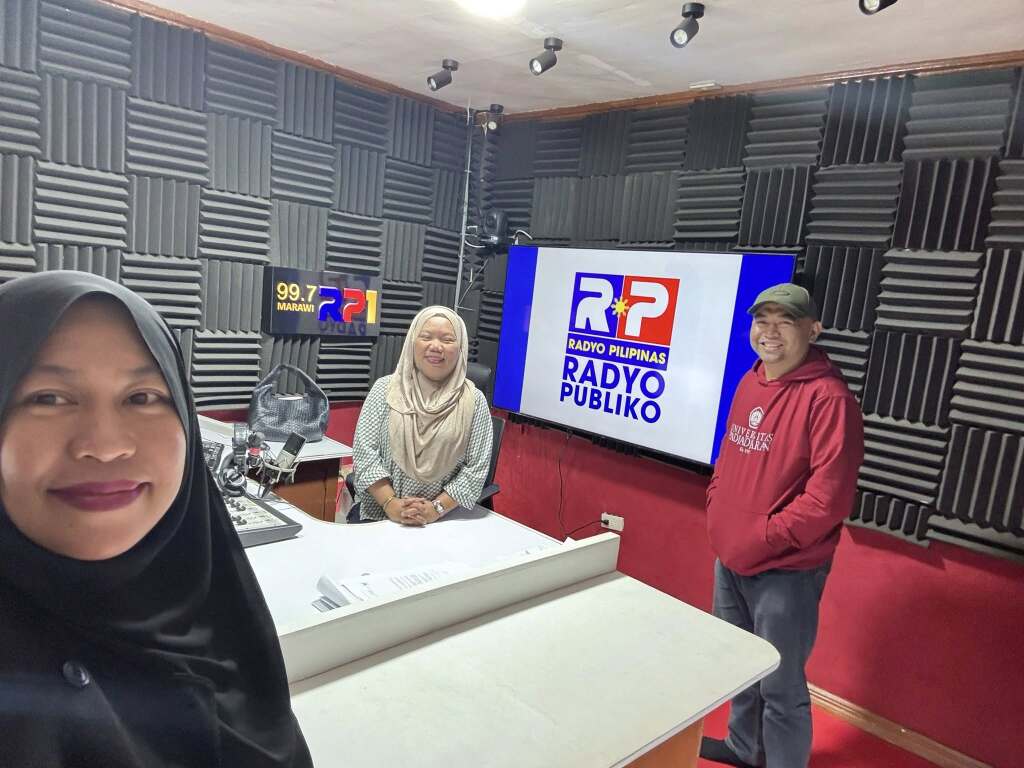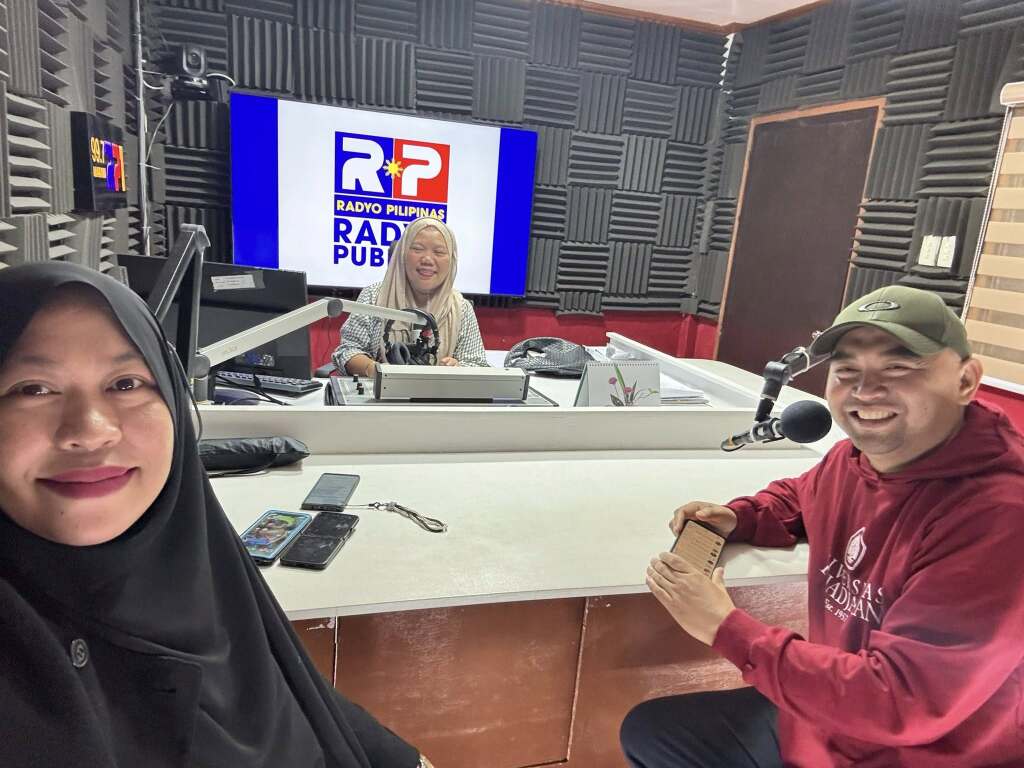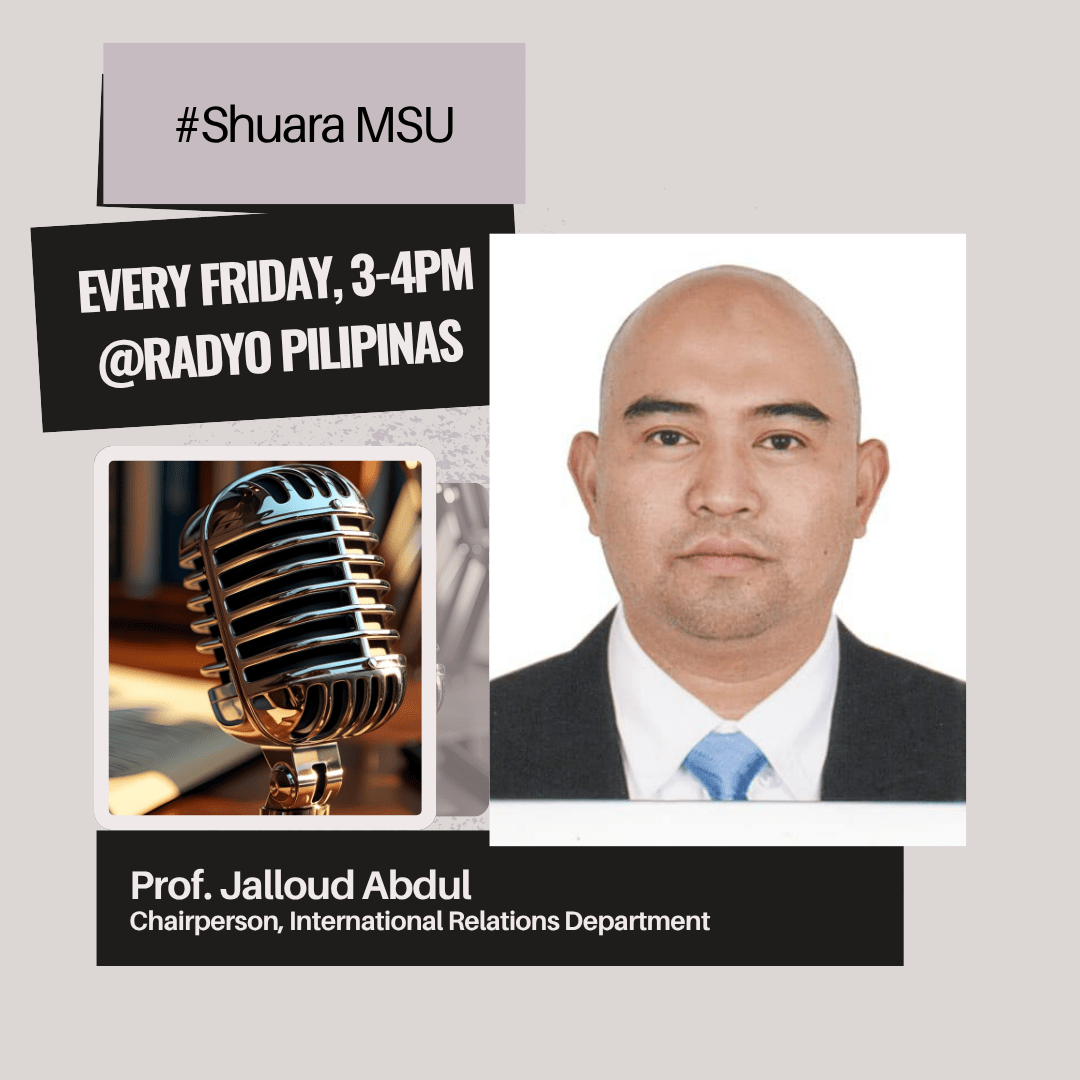Aliah Pacalna Cali-Pascan, DPA, JD, Sh.L
MARAWI CITY, Philippines – June 13, 2025 – Listeners of Radyo Pilipinas Marawi were treated to an insightful discussion today on the program ShuaraMSU, as Dr. Aliah Pacalna Cali-Pascan and Dr. Khayronesah Abbas hosted Prof. Jalloud Abdul, the esteemed Chairperson of Mindanao State University’s (MSU) International Relations (IR) Department. The program shed light on the department’s unique approach to fostering peace, its pioneering status, and its significant contributions to the field.
Prof. Abdul began by proudly highlighting that MSU’s International Relations program was the first ever offered specifically in the MSU Marawi campus within the entire Mindanao State University System, marking a significant milestone. He also noted that while MSU TCTO is currently planning to establish its own IR program, MSU Marawi remains the trailblazer. Prof. Abdul spoke of the department’s alumni who, despite their considerable achievements, embody a philosophy of quiet dedication, often remarking that the department “works with a wave in the ocean without a splash.”
This ethos underscores their commitment to impact without the need for public prestige, grounded in core values and disciplined training.
Reinforcing the program’s academic rigor, Prof. Abdul recalled a statement by no less than University President Atty. Basari Mapupuno, who once lauded International Relations as the “best pre-law course.” Beyond law, the curriculum opens diverse career paths, from “flight attendant” to office-based roles, emphasizing the personal development fostered within the program.
A key point of discussion was the department’s commitment to staying current. Prof. Abdul noted that their curriculum, updated as recently as 2023, was rigorously benchmarked against various universities in the ASEAN region and is explicitly aligned with the United Nations Sustainable Development Goals (SDGs). While subjects like diplomatic governance are central, the curriculum ensures that global issues are tackled through culturally sensitive problem presentations and research. This holistic approach equips students with practical skills, particularly in the realm of internationalization.
The department’s practical orientation is further enhanced by its robust partnerships. Prof. Abdul revealed a strong collaboration with the Foreign Service Institute, a testament to which is the current assignment of four MSU IR students to the Institute. Looking ahead, the department plans to coordinate with the autonomous Foreign Service Institute for future Foreign Service Exams reviews, a significant development for aspiring diplomats from Mindanao.
International exposure is a cornerstone of the department’s strategy. Prof. Abdul shared details of a recent trip to Bandung, Indonesia, where they visited Pajadjaran University. This visit has paved the way for an exciting student exchange program, with an initial pilot of at least five students slated for the upcoming semester, a promising step towards broader ASEAN integration.
In a move aligned with the University’s overarching vision, the department, in coordination with the Institute for Peace and Development in Mindanao (IPDM), is conceptualizing the establishment of an ASEAN Institute for Peace. This initiative promises to be a vital hub for peace research and advocacy in the region.
The department boasts a dedicated team of eight faculty members and two distinguished experts: former Undersecretary Jehanne Mutin and Prof. Tomara Ayo, catering to approximately 127 students. While acknowledging the challenge of not having a senior high trend, Prof. Abdul mentioned their existing bridging program to address this.
For Prof. Abdul, the “exciting opportunities” for the department lie in travelling abroad and learning through direct exposure. He eloquently summarized the department’s core contribution to the “Peace Equation” as the “preservation of peace.” He asserted their unique position to excel in theoretical frameworks and concepts on peace, drawing not only from academic rigor but also from invaluable “hands-on experience” rooted in the complex history of conflicts within their own community and and among their neighbors.
The interview painted a vivid picture of an International Relations Department that is not only pioneering but also deeply committed to equipping its students with the skills and mindset necessary to actively contribute to peace, both locally and on the global stage.
